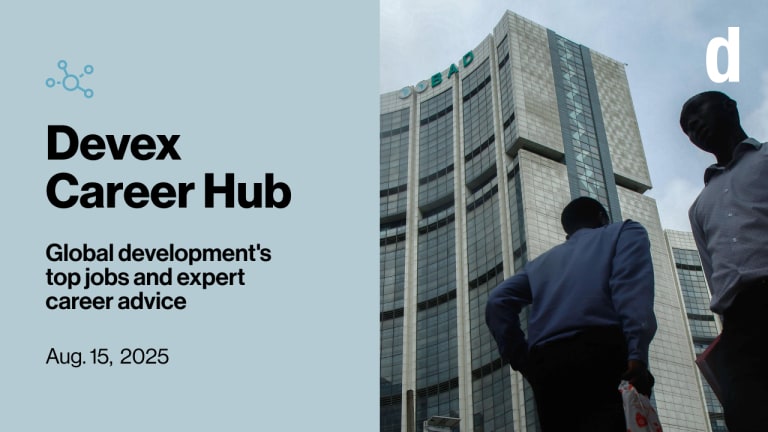
One of the older ways of recruiting endures to this day: The career fair.
Dozens, even hundreds of employers come with tablecloths, displays, pamphlets, mugs, pens, and other free stuff. They send recruiters and hiring managers, who come to sit at tables where they hope qualified people will come ask them about their various opportunities. These employers spend a lot of money. Some are paying hundreds if not thousands of dollars (if they're sponsoring), sometimes flying their staff from abroad in order to find qualified candidates.
I have been a recruiter three times and I've attended dozens of career fairs at universities and other various conferences. I've been behind the table, so I have advice to help make this a better experience for everyone. Job seekers need to keep a few things in mind before walking into the recruiting hall.
Follow these tips for a productive career fair experience.
1. Dress appropriately: Even in California, you want to make sure you're in at least a business casual, if not business formal outfit.
2. Do your research: The list of employers that are attending is always published in advance. Prioritize your target employers and make sure you know their open positions; their overall mission, objectives, priorities, where they operate, etc.; and their financial situation. For nonprofits, you can go to Guidestar.com to review most 501(c)(3)'s IRS Form 990, where you can see nonprofits’ sources of funding, expenditures, board members/compensation, as well as their top-10 paid staff. For publicly traded companies, you can check their websites or sites such as Yahoo Finance or E-Trade for more detailed information. The priority is to figure out their priorities and to understand a little about the market or industry they're working in.
3. Ask good questions: When you get to the employer booths, be prepared to ask the recruiters a handful of questions. Informed questions always make a good impression. "Hi, I'm Amadou, a monitoring and evaluation consultant. I noticed that you have a position open on your MEAL team in East Africa. Would you be able to tell me a little more about the position and what you're looking for in the best candidates?"
Never go up to a recruiting table, glance up at the name of the company, and say, "Huh, Asia Foundation... so what do you guys do?" That's the worst first impression you could make. Of course if there are more than 50 employers at the forum, you’re not expected to be an expert about all of them. If you have already visited the companies that you researched ahead of time, you might be walking around hoping for serendipity and to learn about organizations you hadn't considered. Sometimes this can lead to pleasant surprises. When you haven't done as much research on a company, you can start by introducing yourself, which includes asking the recruiters their names and priorities. "What positions are you recruiting for today?" That's a much better question and it allows the recruiters to be more direct about their priorities.
4. Be careful about the SWAG: Recruiters will come with all kinds of cool stuff to give away: SWAG, or stuff we all get, such as pens, cups, frisbees, squishy stress balls, notebooks, travel mugs, and charger packs. This is all designed to draw you to their tables. You are welcome to take these items, but not without giving the recruiters your attention in exchange. Walking by a table and taking something without talking to the recruiters is rude and makes a terrible impression. If you're feeling introverted, a way to start a conversation with a recruiter could be, "Wow, that's a great mug! How is it going for you today?" and the recruiter can then talk about what they're looking for, and you go from there. The SWAG was brought to be given away, and the more recruiter gives away, the less they have to drag away on their way home. So please do help yourselves — after a conversation.
5. Manage your time: There is always an initial rush, in particular if it's at a conference and you're between sessions with limited time. If there is a scrum of people around a recruiter and the recruiter is generally answering questions, it's acceptable to eavesdrop. But it's not fair to monopolize recruiters' time when there is a long line of people. So if you're not directly in front of the recruiter, you listen and absorb what the person is saying. Then when things die down, you can go back and ask more detailed, personalized questions. Recruiters can get bored at these events during slow periods when nobody is visiting their tables; this is your opportunity to engage them and make a good impression.
6. Follow up: You'll collect a lot of business cards. Write down what you remember from your conversations on the backs of the business cards. Then afterwards, you can write an email thanking the recruiter for their time and saying you look forward to applying or being considered for whatever positions you discussed. You can wait one or two days before following up. If a career fair is on a Friday, you make sure it's in their inbox by Monday.
Do these six things and the career fair will have been worth your time, and you will have made such a great impression that the recruiters will feel good about their experience and want to come back.








